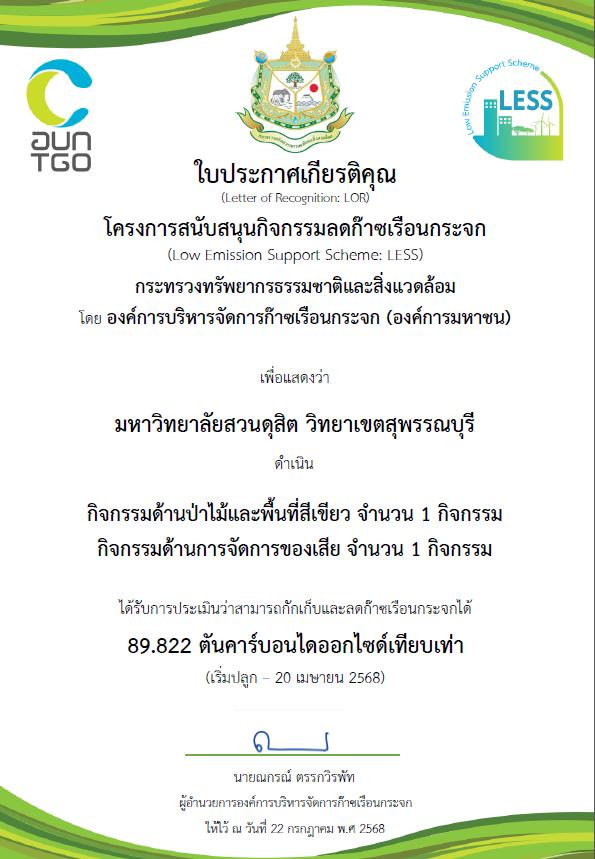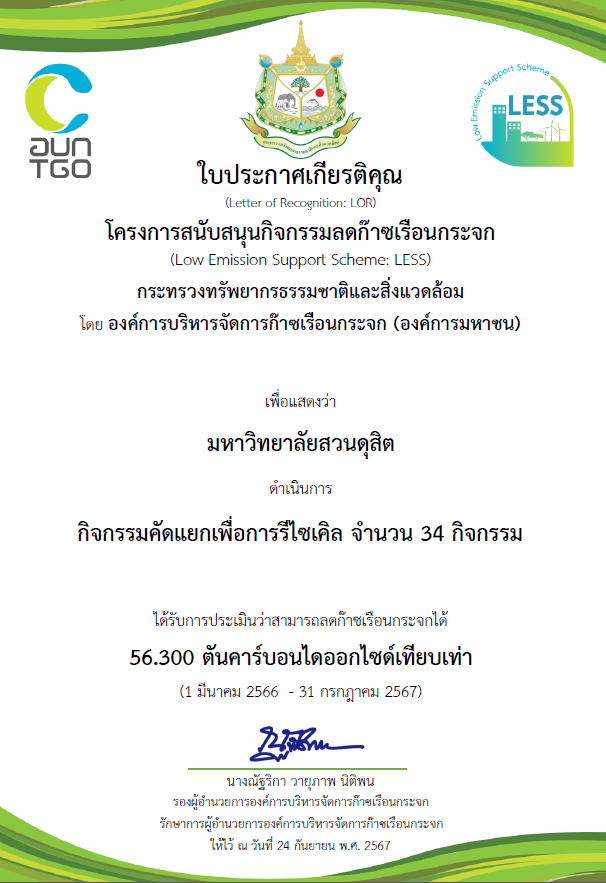Suan Dusit University recognizes the importance of being part of the global environmental solution, particularly through the effective management of resources and waste generated within the institution. The University emphasizes the development of a value-based resource utilization system by adopting the Zero Waste concept as a core management approach. This initiative is founded on the integration of the 3Rs principles — Reduce, Reuse, and Recycle — into the daily operations of the university community, alongside the Bio-Circular-Green (BCG) Economy Model. This approach not only aligns with the University’s strategic direction but also supports the national Circular Economy agenda by developing systems for collecting and analyzing plastic waste management data, as well as mechanisms and tools that promote resource efficiency under the “Circular Living” concept. The initiative fosters a sustainability-oriented organizational culture, embedding sustainability into both administrative and operational practices through the Green Meeting system an effective mechanism for resource management, workshops, and capacity-building for pilot departments. These actions are implemented in accordance with the Suan Dusit University Environmental, Energy, and Resource Quality Management Policy, announced on 18 August 2022, which emphasizes Clause 3: Raising awareness, knowledge, understanding, and participation among students, staff, and stakeholders by adhering to the 3Rs principles — Reduce (use less or only as necessary), Reuse (use items multiple times), and Recycle (reprocess materials for reuse) — to minimize waste generation, particularly plastic waste at the source, thereby reducing the burden of final waste disposal and Clause 6: Promoting and enhancing the efficiency of waste management systems to prevent, control, and mitigate pollution — including hazardous waste, wastewater, air, chemicals, and other pollutants — while ensuring the effective reuse of treated water according to established standards to minimize environmental impacts. Additionally, the University has established procedures related to green procurement — the acquisition of environmentally friendly products and services — to minimize environmental impacts throughout all stages, including material sourcing, resource and energy consumption during service delivery, and waste management processes.
environmental-quality-management-policy-2565.pdf
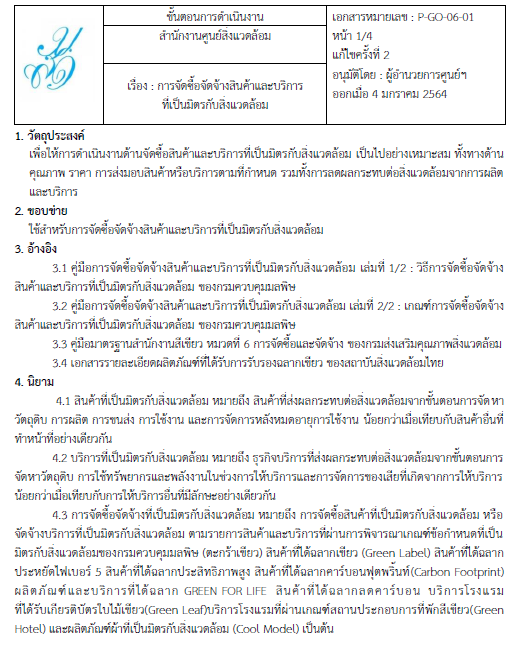
Solid Waste Management Operations In each area of Suan Dusit University, solid waste management has been systematically implemented. Waste bins are installed in ground-level areas and categorized into 4 types to facilitate proper waste segregation. The Building and Facilities Division is responsible for sorting the waste before transferring general waste for landfill disposal. Furthermore, the University has developed a waste data recording system to track the amount of waste generated by type and by area. In 2024, Suan Dusit University generated a total of 647 tons of solid waste across all areas, consisting of 48 tons of recyclable waste and 599 tons of general waste sent for landfill disposal.
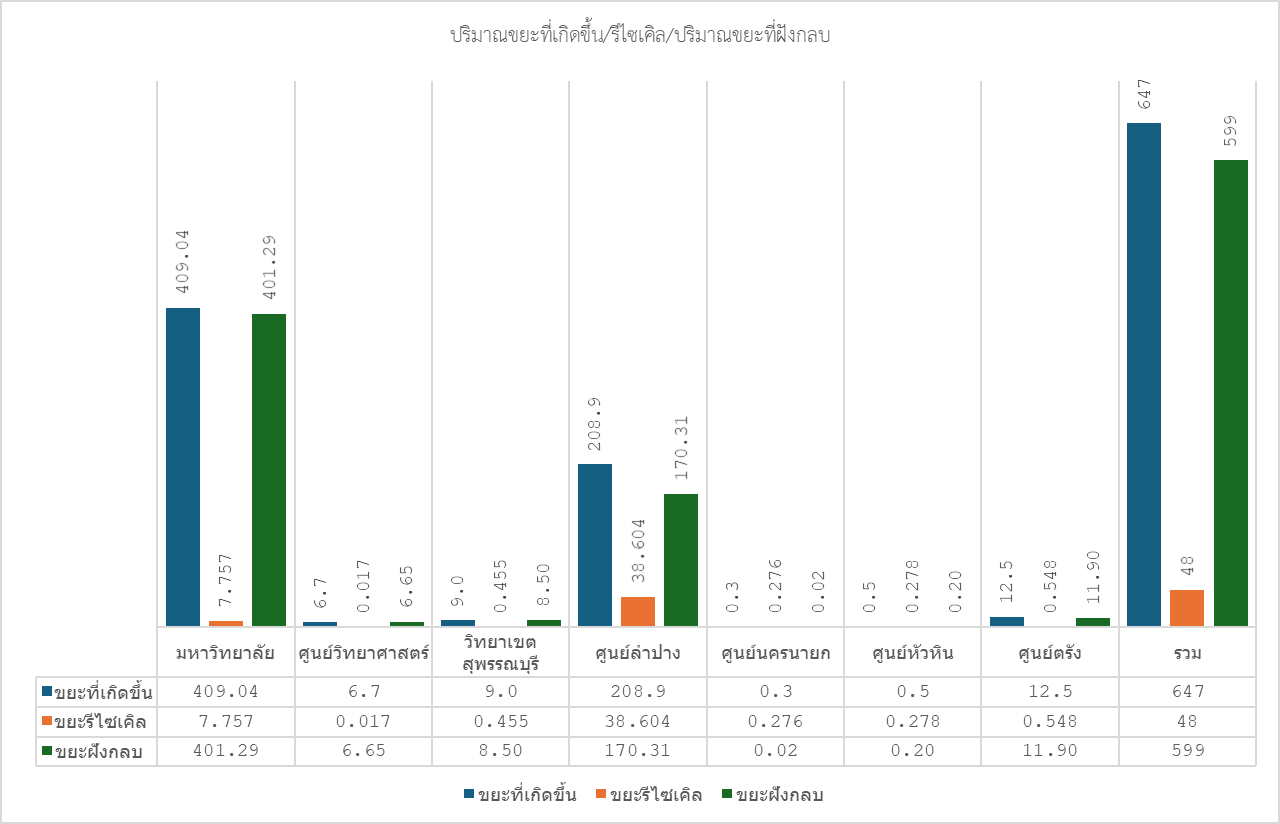
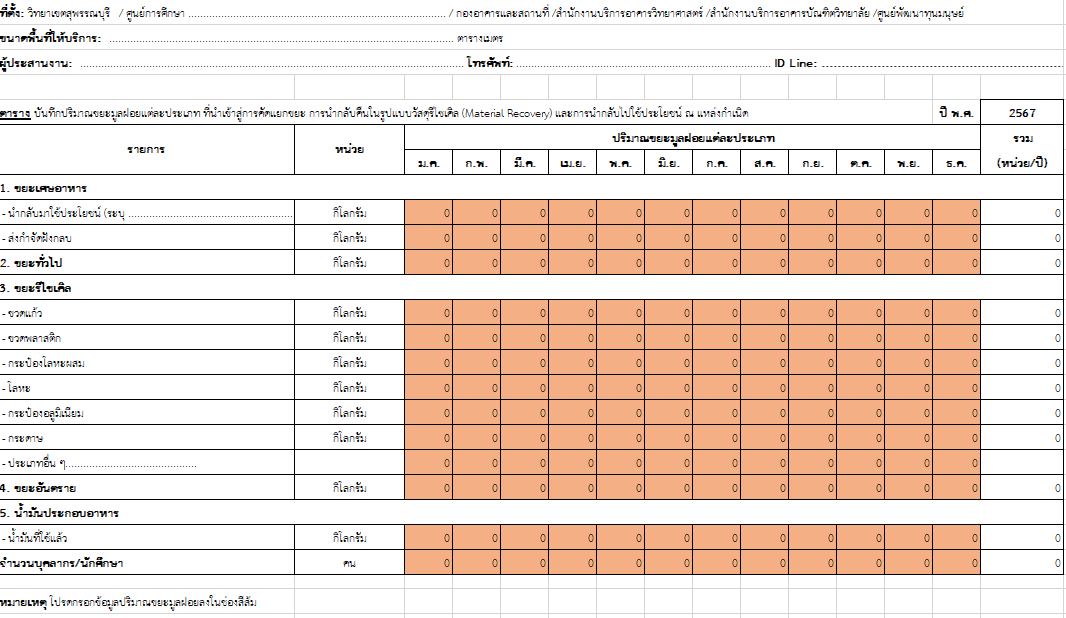
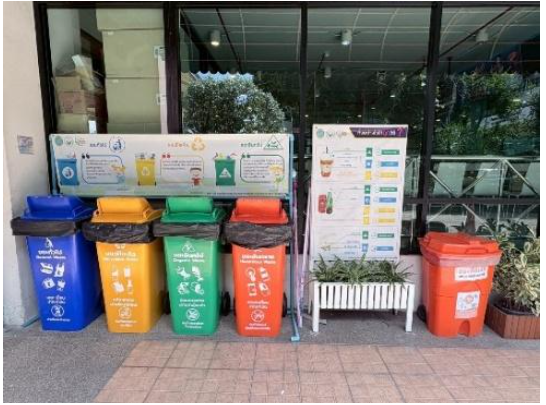
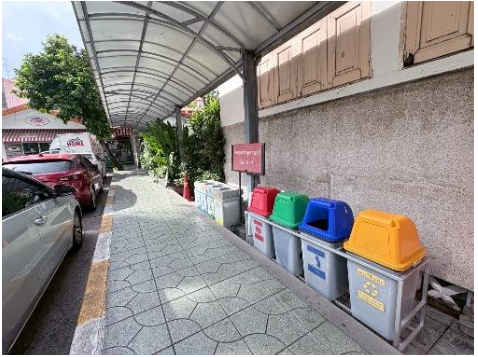
Suan Dusit University has been implementing a hazardous waste management program since 2023, in collaboration with the Pollution Control Department, various government agencies, educational institutions, associations, and private sector organizations — totaling 42 entities. Together, these partners signed a Declaration of Intent on Public–Private Collaboration for the Collection of Hazardous Waste from Communities, in alignment with the Thai Government’s ongoing policy on solid waste management under the National Solid Waste Management Action Plan, Phase 2 (2022–2027). This initiative aims to mitigate environmental and public health impacts arising from improper hazardous waste management. It also seeks to raise awareness among university personnel and students regarding the adverse effects of incorrect hazardous waste disposal and to promote waste segregation by separating hazardous waste from general waste at the source. To ensure proper handling, the University has established designated collection points for hazardous waste within the campus. The collected waste is subsequently transferred for safe and compliant disposal in cooperation with the Dusit District Office, following recognized environmental and scientific standards.
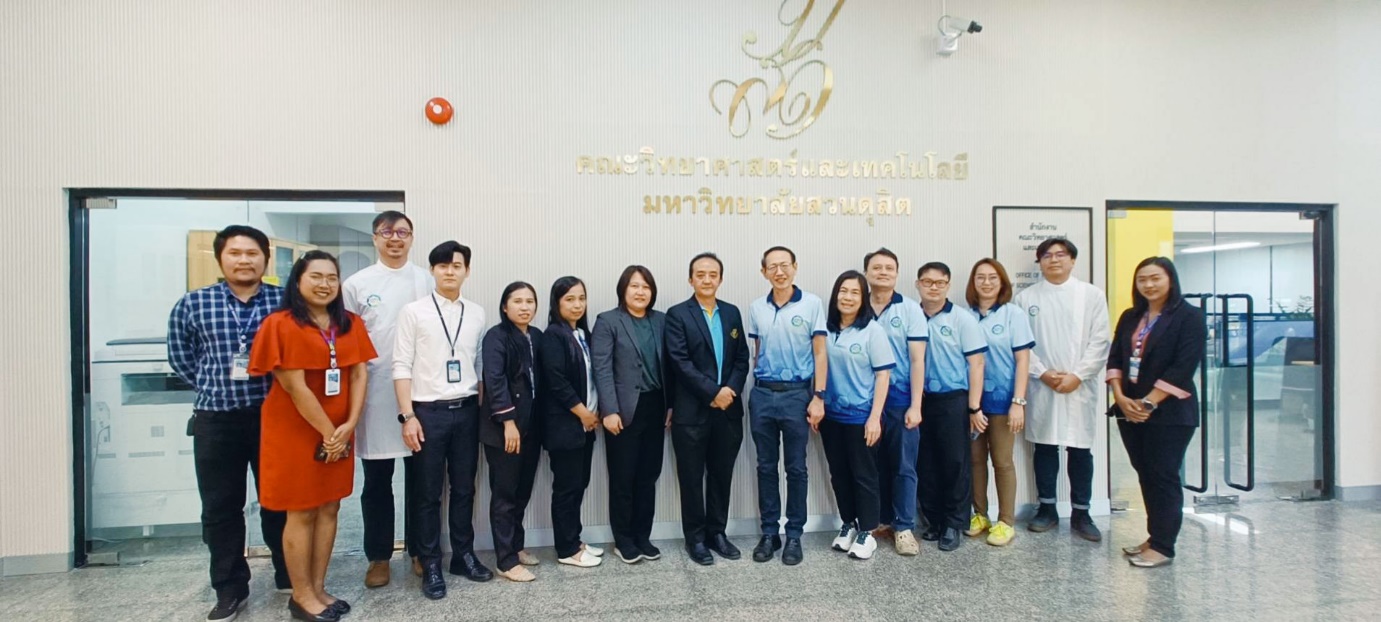
For hazardous waste generated within the scientific laboratories of various faculties and departments, Suan Dusit University has established a system for the collection and centralized disposal of such waste. In addition, the University has developed a Thai Industrial Standards (TIS) framework for laboratory safety management systems involving chemicals since 2018 and has implemented the Laboratory Safety Management System under the supervision of the National Research Council of Thailand (NRCT) since 2021. The University also participates in the Enhancement of Safety Practice of Research Laboratory in Thailand (ESPReL) project, which promotes safety awareness among researchers, fosters a safe and conducive laboratory environment, and enhances personnel competency in laboratory safety management.
Furthermore, the University has advanced solid waste management through the application of the 3Rs principles (Reduce, Reuse, Recycle), translating policy into action. These principles have been integrated into the University’s waste management framework, serving as a foundation for both internal waste management mechanisms and participation in greenhouse gas reduction initiatives (LESS Program for Waste Management).
- Reduce – Reduction begins at the source. Suan Dusit University promotes awareness and behavioral change among staff and students, emphasizing the reduction of plastic usage at the source through campaigns that discourage unnecessary consumption.
- Reuse – The University encourages reuse through incentive-based and participatory activities among students and staff. Examples include the “Reusable Fabric Bag Lending Project” by the Faculty of Education and the “5 Bottles for 1 Bag” campaign by the Student Development Division. These initiatives extend the lifespan of materials and reduce dependence on single-use packaging.
- Recycle – At the core of SDU’s waste management strategy is transforming “waste” into “resources” through a strong Circular Economy system. The University has implemented a standardized waste separation system with designated recycling points across campuses and has built strategic partnerships with major private sector organizations such as the GC YOU-Turn Project and the Plastic Bank Project. These collaborations facilitate the collection and transport of used plastic bottles and high-value waste to world-class recycling facilities (ENVICCO), ensuring responsible and sustainable resource recovery.
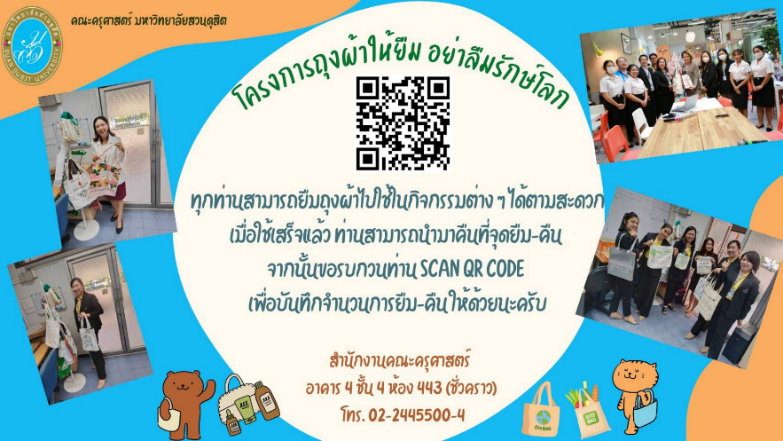
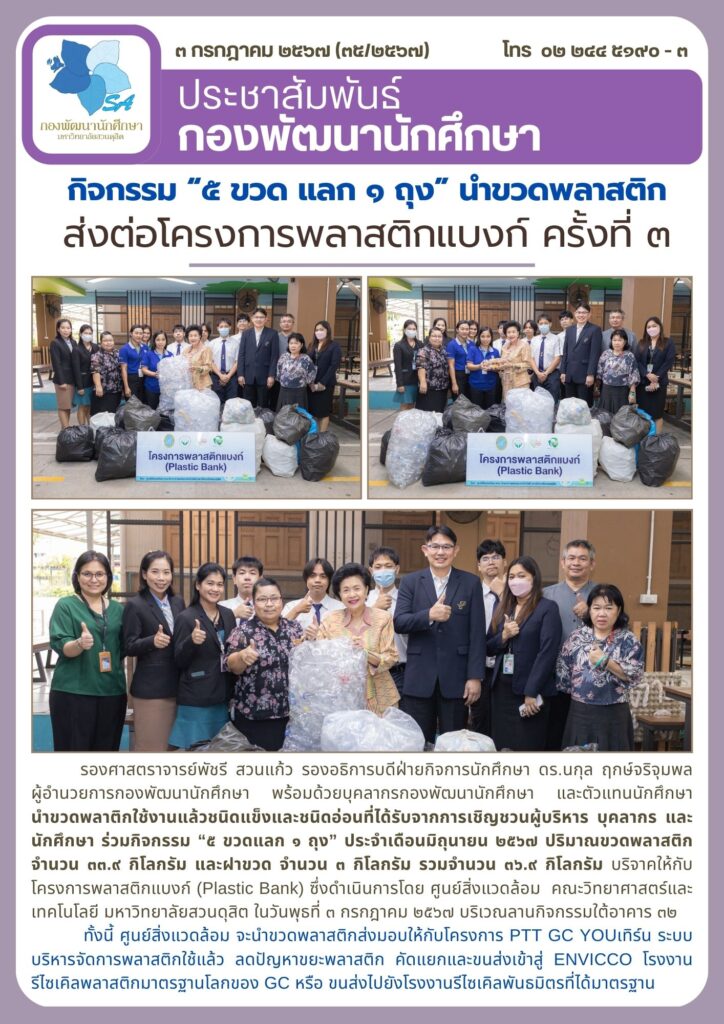
Behavioral Change Mechanisms and Plastic Waste Management
Suan Dusit University places strong emphasis on developing a Sustainable Consumption and Production (SCP) system by fostering awareness and encouraging responsible participation among students and staff. The University has established behavioral mechanisms and practical tools to promote mindful resource use under the Circular Living concept through the following initiatives:
- Systematic Plastic Waste Management – The University launched the Plastic Bank Project to collect both rigid and flexible plastic waste. In 2024, the project expanded its scope to include hazardous waste and electronic waste, and was renamed Plastic Bank Plus. The project collected 1,056.20 kilograms of plastic waste, reducing 1,088.94 kilograms of CO₂ equivalent, which is comparable to the carbon absorption capacity of 114.6 trees in one year.
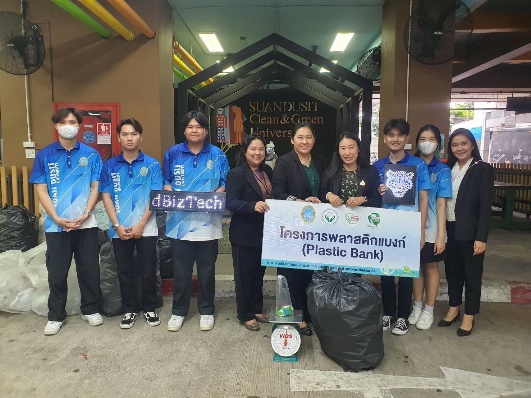
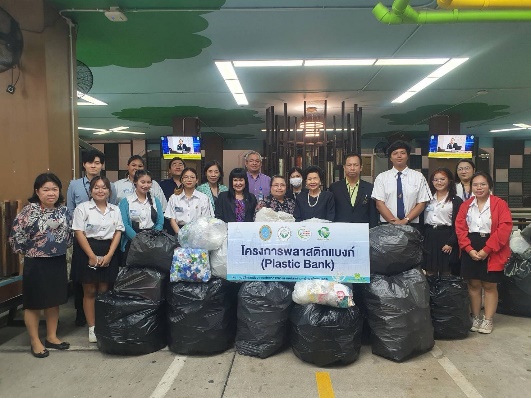
- E-waste Green Network Project – Implemented in collaboration with Advanced Info Service Public Company Limited (AIS), this initiative focuses on the systematic management and proper recycling of electronic waste under the Zero to Landfill approach. The project aims to minimize environmental impacts caused by improper disposal methods (such as burning or landfilling), recover valuable materials from e-waste, and raise awareness among students and staff regarding the environmental and health effects of electronic waste.
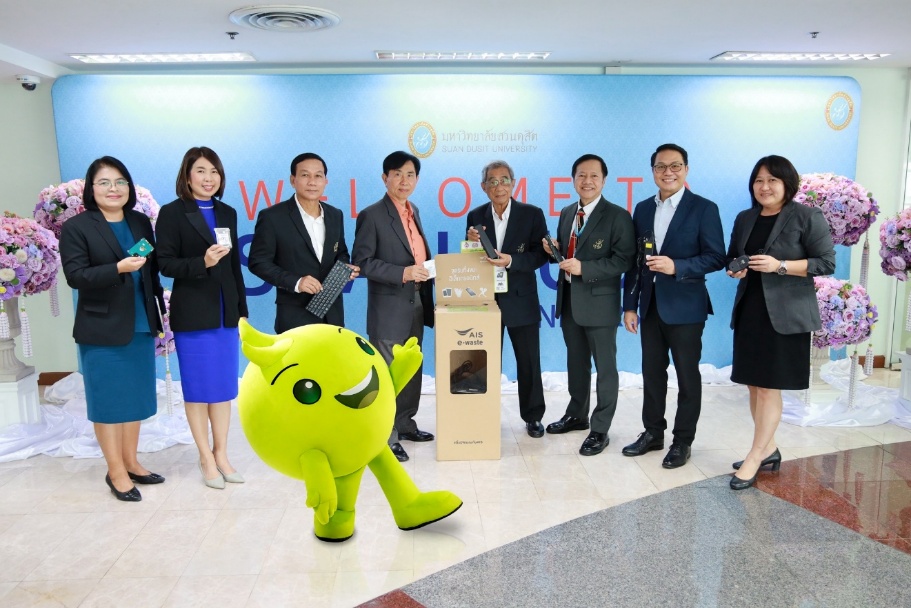
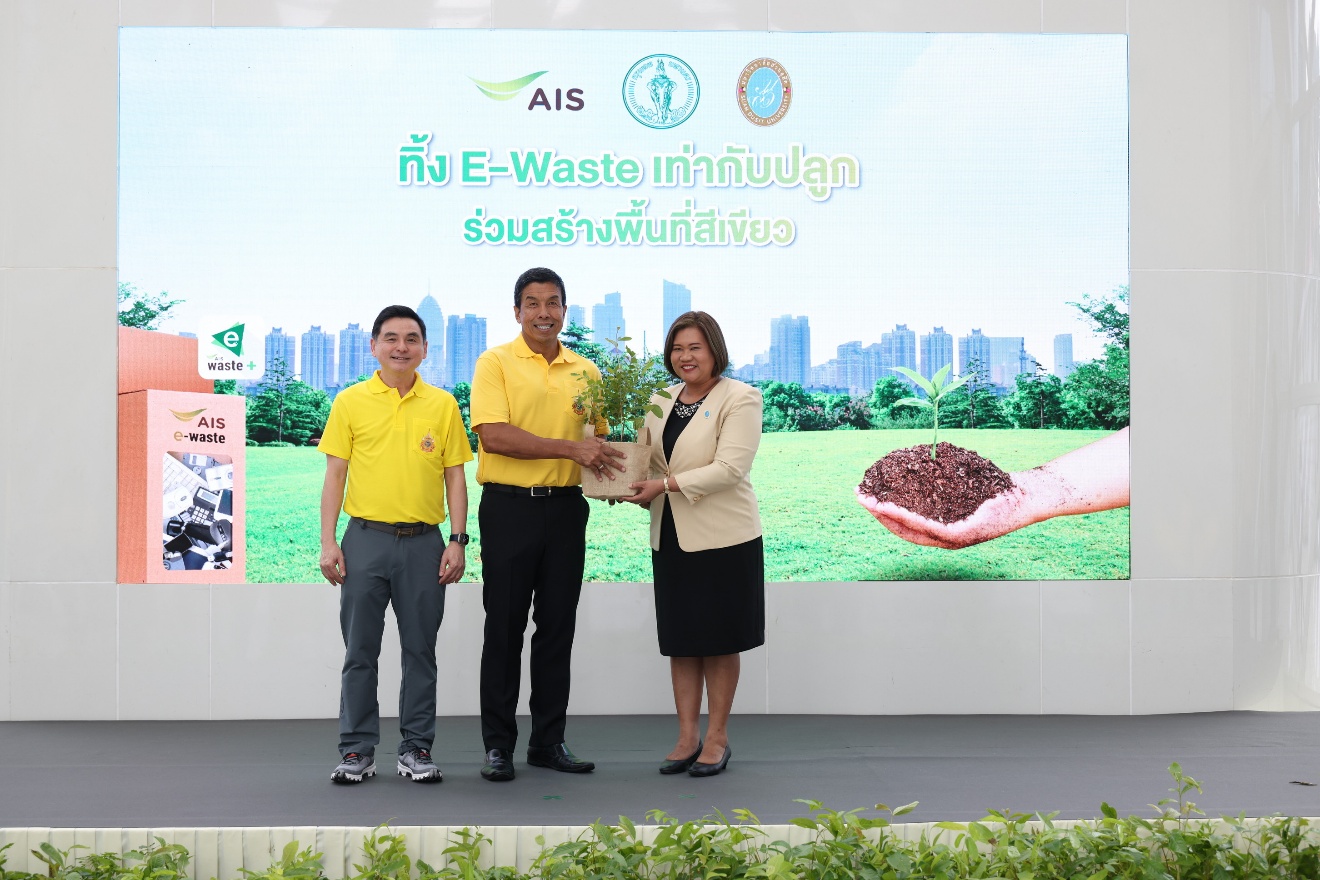
- Green University Project “Ting Turn Hai Lok Jam: Upvel 2” – Implemented in partnership with PTT Global Chemical Public Company Limited (PTTGC) and AIS, this project facilitates the collection of used plastic waste through the GC YOU-Turn platform and electronic waste via the AIS E-Waste+ application. With participation from 42 green universities, the initiative successfully collected over 1,058,634 items of plastic and electronic waste, reducing 23.18 tons of CO₂ equivalent, which corresponds to the carbon absorption of 2,462 trees. Suan Dusit University contributed 14,300 items to the total, demonstrating its commitment to waste reduction and carbon mitigation in higher education networks.
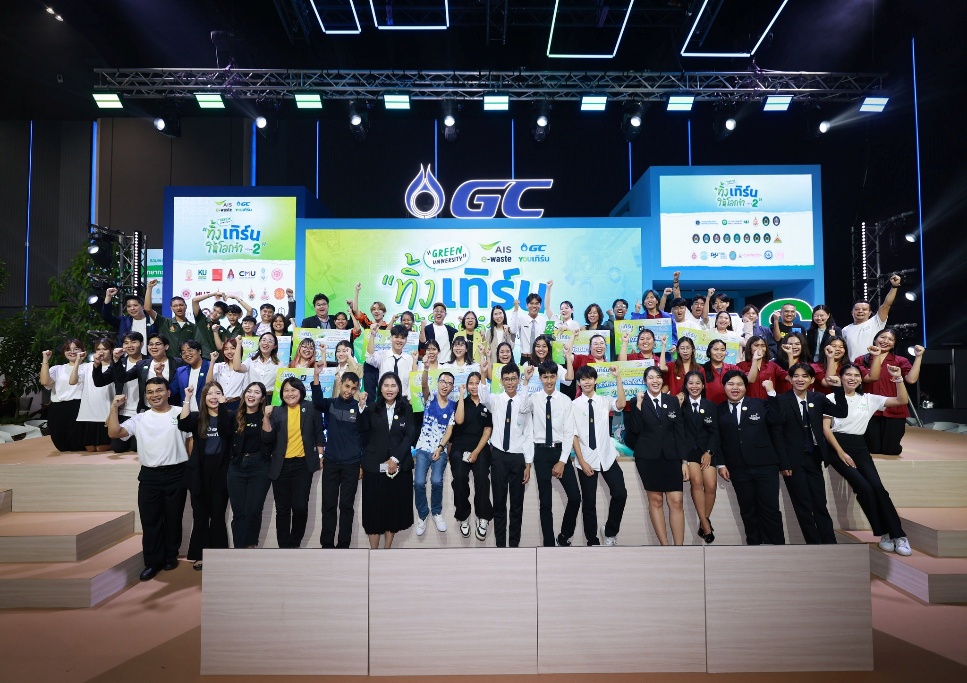
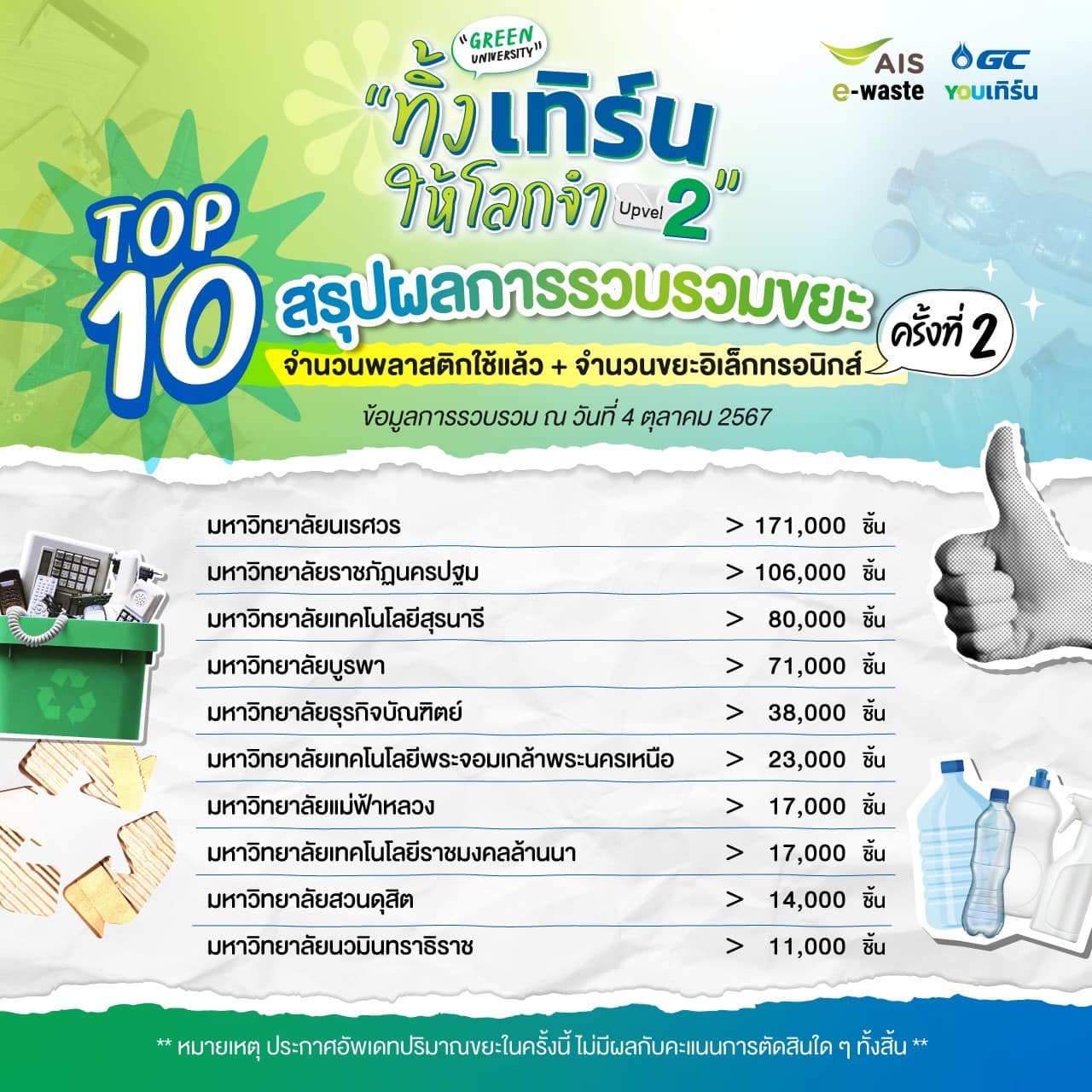
- Ecolife in U Project – Behavioral Change Toward Carbon Neutrality.Under the initiative of the Ministry of Higher Education, Science, Research, and Innovation (MHESI), in collaboration with Kid Kid Co., Ltd., Suan Dusit University has participated in the “Ecolife in U” project. The program aims to promote environmental behavioral change among faculty members, staff, and students by recording recyclable waste data through the Ecolife Fill-in platform. From 2017 to September 2024, the University has recorded a total of 17,882 kilograms of recyclable waste, resulting in a reduction of 60,860 kilograms of CO₂ equivalent, contributing significantly to the University’s carbon neutrality goals.
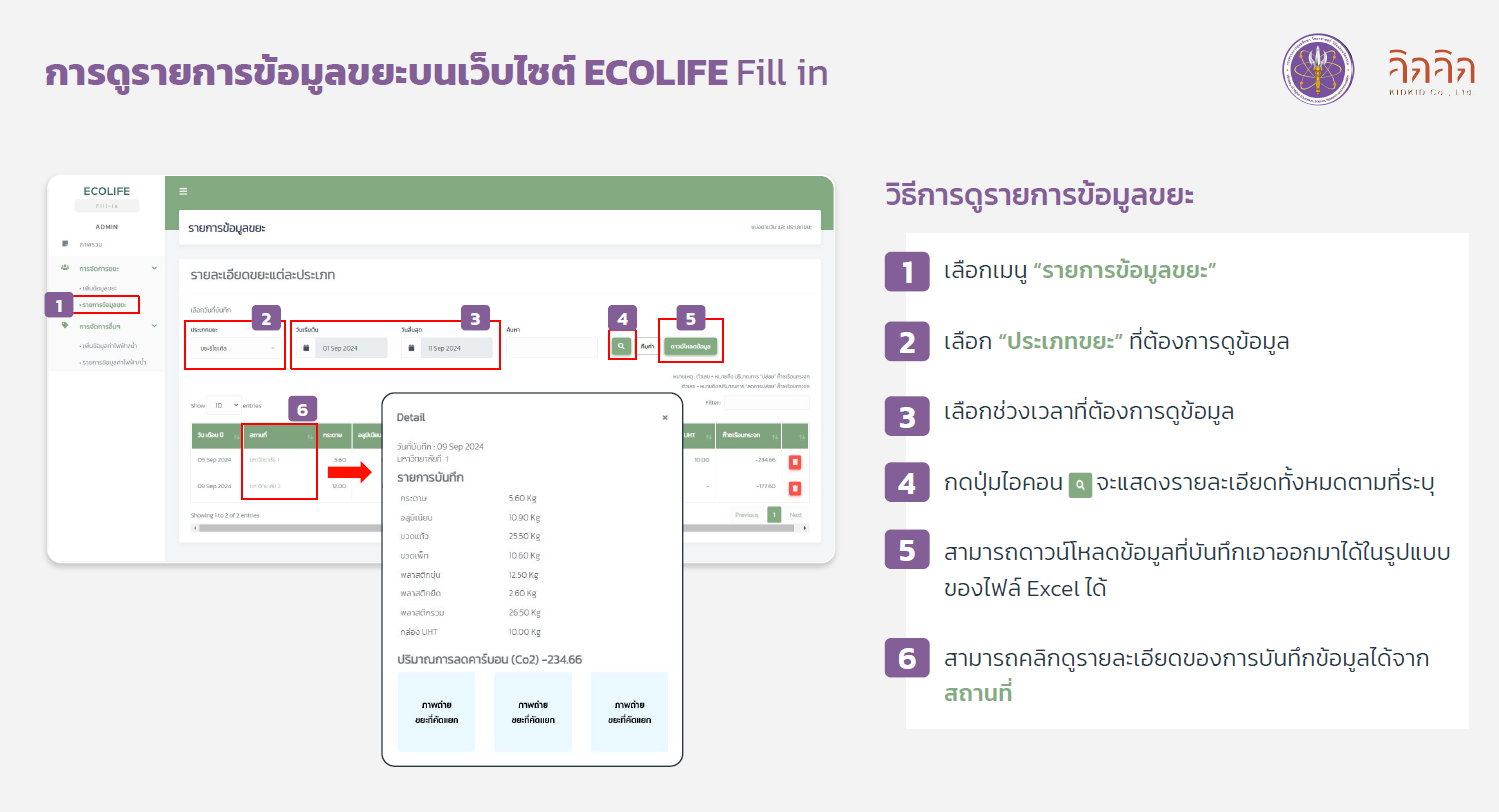
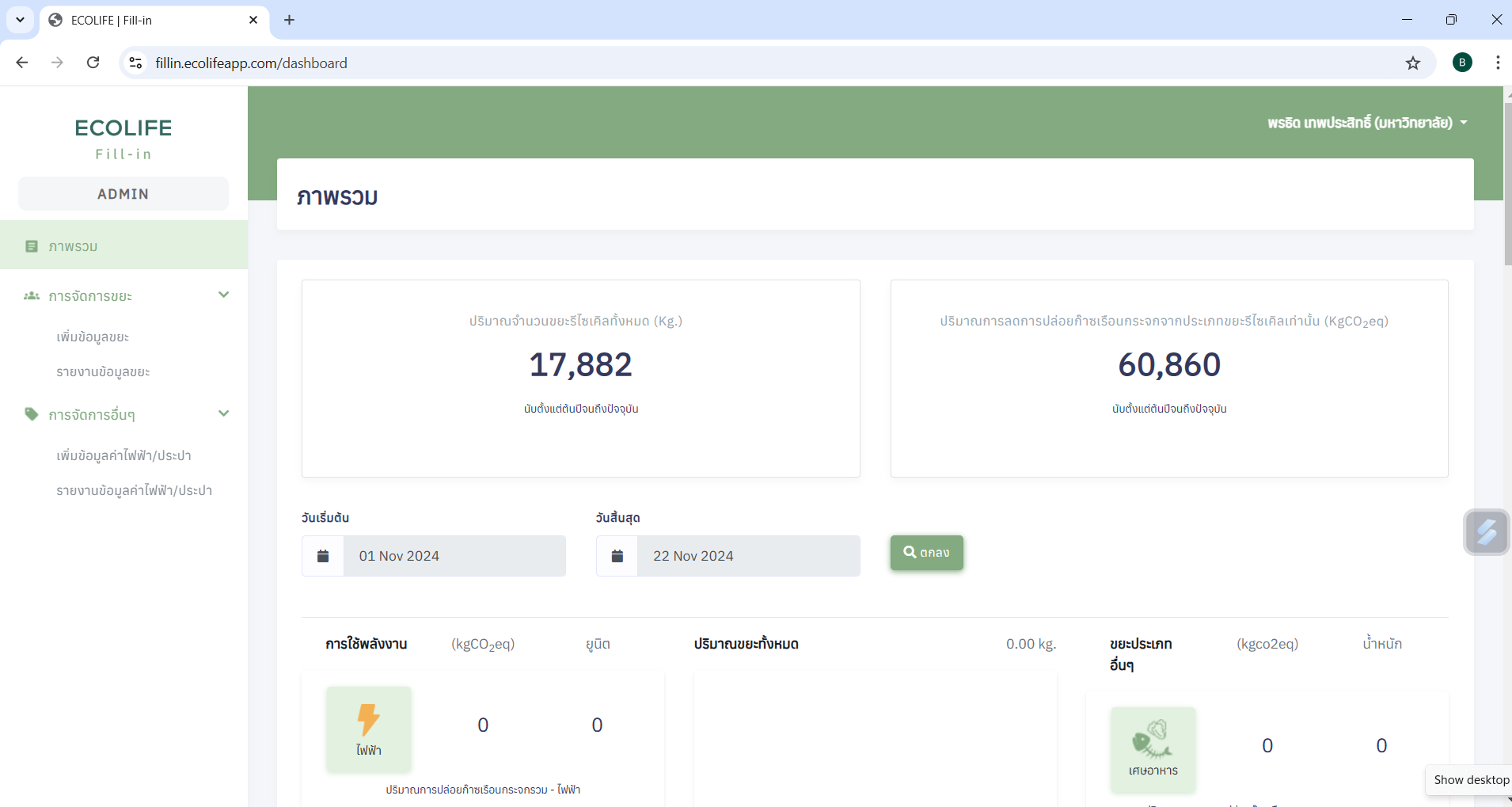
- Greenhouse Gas Reduction Support Project (Less Emission Support Scheme: LESS) – In the area of waste management, Suan Dusit University achieved a verified reduction of 59.224 tons of CO₂ equivalent. Additionally, the University has extended its Plastic Bank Project by channeling collected plastic waste to external collaborative initiatives such as Precious Plastic Bangkok, GC YOU Turn, and N15 Technology, ensuring that the waste is utilized effectively and contributes to broader environmental sustainability efforts.
